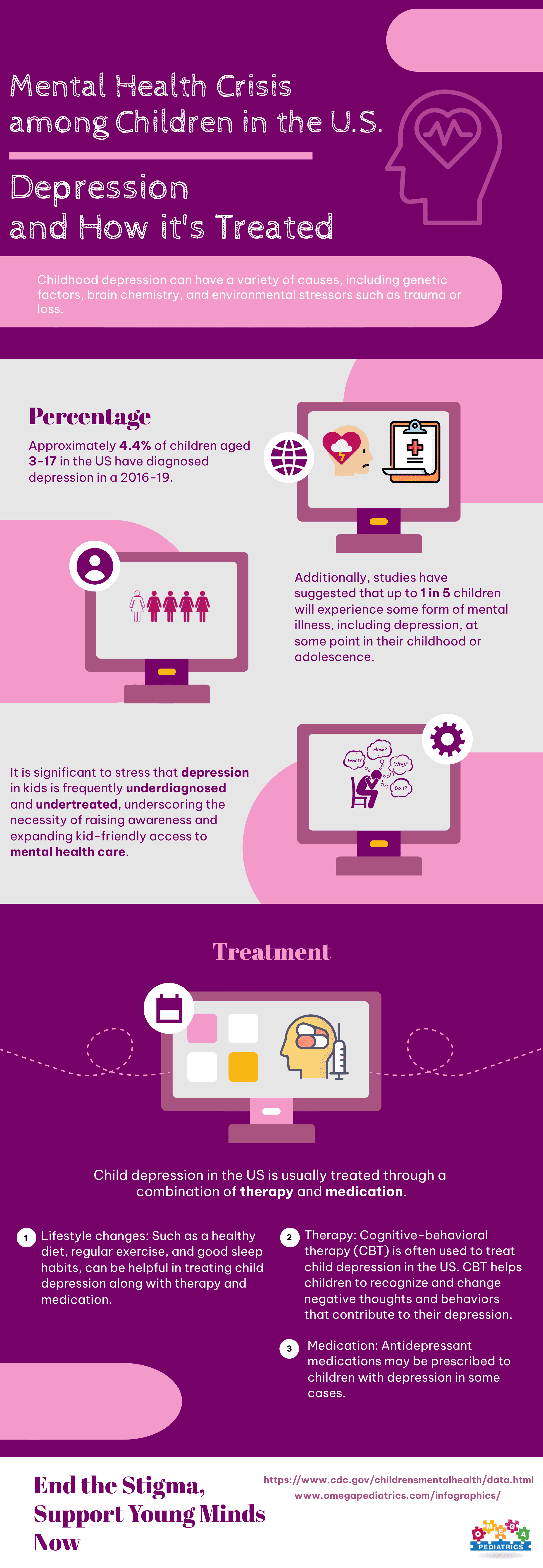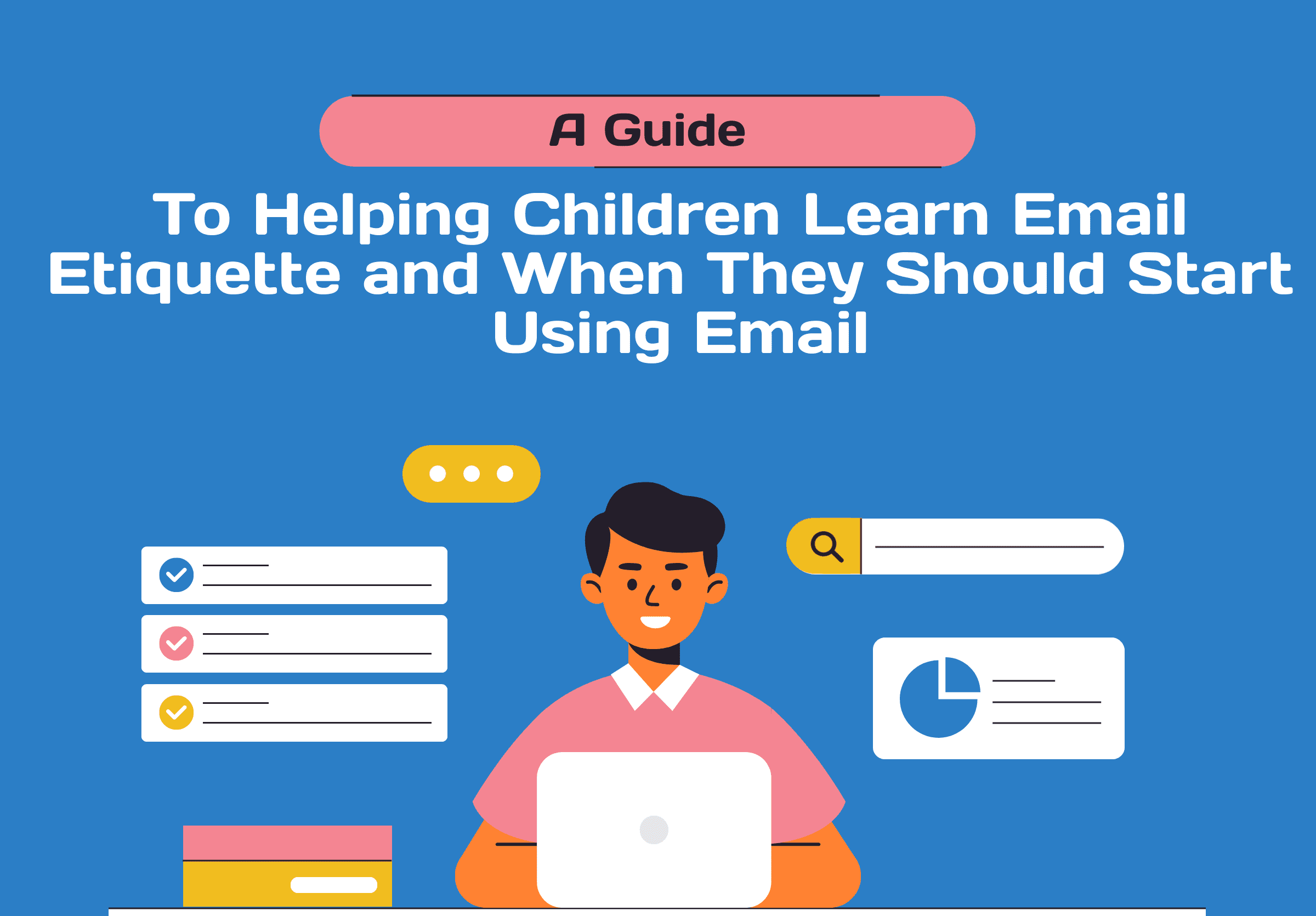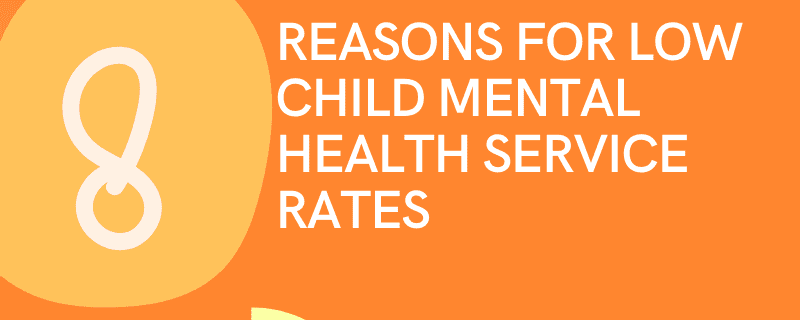Understanding the Roots: Causes of Childhood Depression
Childhood depression can have a variety of causes, including genetic factors, brain chemistry, and environmental stressors such as trauma or loss.
Approximately 4.4% of children aged 3-17 in the US have diagnosed depression in a 2016-19.
Additionally, studies have suggested that up to 1 in 5 children will experience some form of mental illness, including depression, at some point in their childhood or adolescence.
It is significant to stress that depression in kids is frequently underdiagnosed and undertreated, underscoring the necessity of raising awareness and expanding kid-friendly access to mental health care.
Treatment Approaches for Childhood Depression
There are several treatment options available for childhood depression in the United States. The most common treatments include psychotherapy and medication, often used in combination. Here are some of the most commonly used treatments:
Psychotherapy: Psychotherapy, also known as talk therapy, is a type of treatment that involves talking with a mental health professional about your child’s thoughts, feelings, and behaviors. Different types of psychotherapy may be used to treat childhood depression, including cognitive-behavioral therapy (CBT), interpersonal therapy (IPT), and family therapy. These therapies help children develop coping skills, problem-solving strategies, and healthier ways of thinking and behaving.
Medication: Antidepressant medications, such as selective serotonin reuptake inhibitors (SSRIs), are sometimes prescribed to treat childhood depression. These medications can help regulate brain chemicals that affect mood and emotions. However, it’s important to note that antidepressant medication may have side effects, and should only be used under close supervision by a mental health professional.
Combination Therapy: Combination therapy, which involves both psychotherapy and medication, may be recommended for some children with depression. This approach can help address both the emotional and physical symptoms of depression, and may be especially effective for children with severe or persistent depression.
Lifestyle Changes: In addition to psychotherapy and medication, lifestyle changes may also be recommended to help manage childhood depression. This may include regular exercise, healthy eating, good sleep habits, and stress reduction techniques such as mindfulness or yoga.
Tailoring Treatment to Individual Needs
It’s important to note that treatment for childhood depression should be tailored to the individual needs of the child, and may involve a trial-and-error process to find the most effective treatment plan. If you’re concerned about your child’s mental health, it’s important to seek the help of a qualified mental health professional. They can assess your child’s symptoms, provide an accurate diagnosis, and develop a treatment plan that is appropriate for your child’s specific needs.
Parental Involvement and Support
While professional intervention is crucial in managing childhood depression, the role of parents and caregivers cannot be overstated. Parental involvement and support play a pivotal role in the overall well-being of a child struggling with depression. Recognizing the signs, fostering open communication, and creating a supportive environment are vital aspects of the parental role in addressing childhood depression.
Parents should strive to maintain open lines of communication with their children, creating a safe space for them to express their feelings and concerns. Understanding the challenges their child faces and being empathetic can contribute significantly to the child’s emotional well-being. Additionally, parents can educate themselves about childhood depression, its symptoms, and available treatments to better support their child’s journey to recovery.
In cases where professional help is sought, parents often become integral members of the treatment process. Collaborating with mental health professionals, attending therapy sessions, and actively participating in the recommended interventions can enhance the effectiveness of the overall treatment plan.
Conclusion
Childhood depression is a complex and challenging issue that requires a multifaceted approach for effective management. With an understanding of the various causes and available treatments, coupled with heightened awareness and accessibility to mental health care, there is hope for improved outcomes for children facing depression. The involvement of both mental health professionals and engaged parents is essential in creating a supportive and healing environment for the child. By working together, we can ensure that children experiencing depression receive the comprehensive care and understanding they need to navigate the complexities of mental health and emerge resilient.




